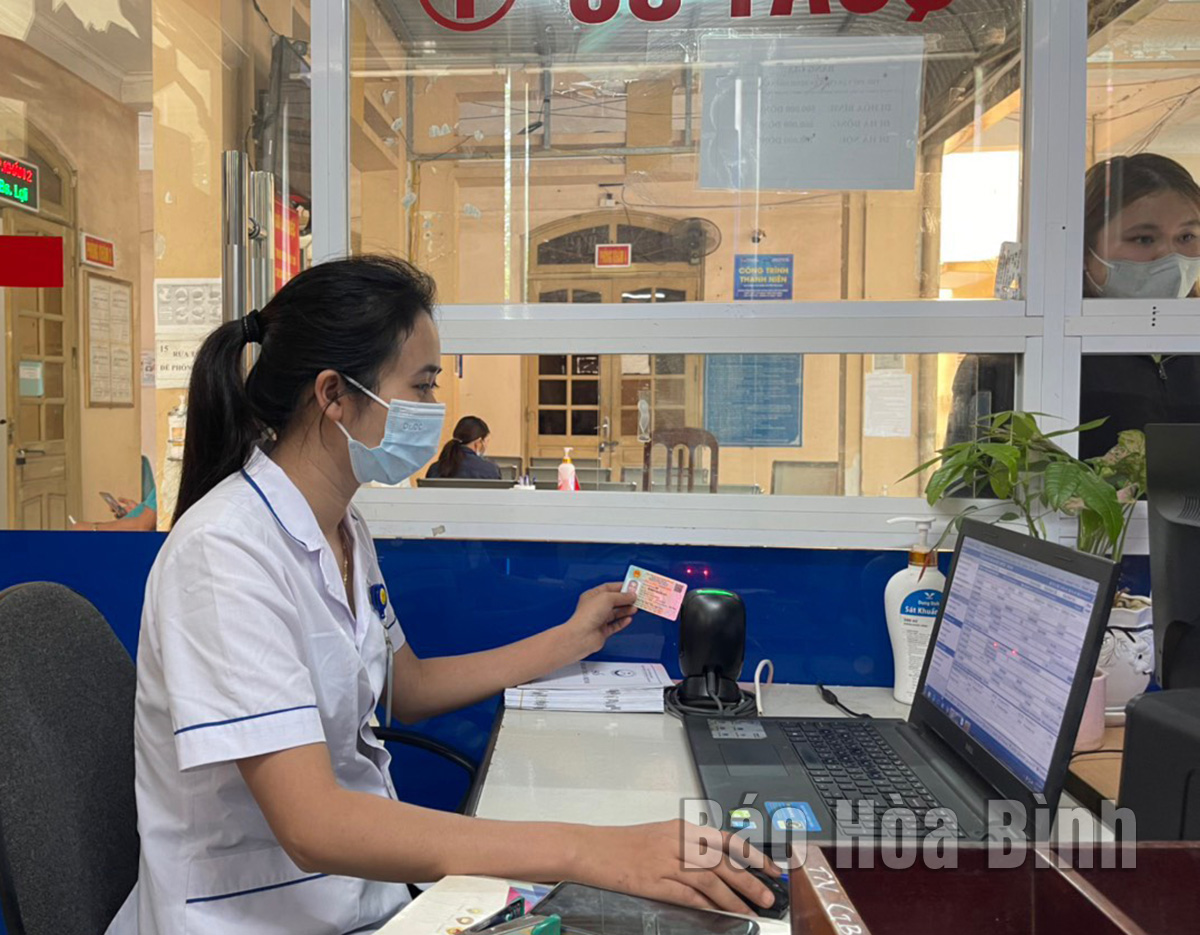
(HBO) - The use of chip-based citizen ID cards to replace paper health insurance cards in medical facilities in Hoa Binh is expected to be the start of a roadmap for the gradual replacement of paperwork in health care procedures, thus reducing the waste of time and money of local residents.
Under the Government's Project No. 06, the
province’s health sector set a target of having 100% of medical establishments
accept the use of chip-based citizenID cards in examination and treatment
services instead of paper health insurance card.
Photo: Local people register for medical
examination and treatment with health insurance by chip-based citizenID
cards at Luong Son district’s health centre.
As many as 232 medical stations in Hoa Binh have
accepted the use of chip-based citizenID cards in place of traditional
health insurance cards, bringing convenience for local residents and ending the
situation that patients use other people's health insurance cards to get
insurance-covered medical treatment or cheat to take advantage of health
insurance funds.
The provincial General Hospital has been
equipped with more than 10 chip-based citizenID card readers.
Recently, the ratio of patients
usingchip-based citizenID cards to access medical treatment covered
by health insurance has increased.
Luong Son district’s health centre leads medical
establishments in Hoa Binh in applying chip-based citizenID cards for
registering medical examination and treatment services, with 8,202 successful
transactions out of 11,268 attempts. The unsuccessful transactions were due to
insufficient data in the database.
The centre has been equipped with five ID card
readers, reducing waiting time for patients.
According to statistics of the Vietnam Social
Security’s chapter in Hoa Binh, so far, there have been nearly 562,000
chip-based citizen ID cards synchronized with insurance data. All public
healthcare facilities at district level and above have implemented lookups of
health insurance information via chip-based citizen ID cards with a success
rate of 61.5%./.
The Department of Education and Training of Hoa Binh province held a conference on March 18 to review the performance of the "Safe and Happy School" Project and set out tasks for 2025. The project, funded by the Taiwan Fund for Children and Families (TFCF), aims to create a safe, inclusive, and supportive learning environment for students. The event saw the attendance of representatives from the TFCF and 26 beneficiary schools.
With over 70% of their workers being women, trade unions across industrial parks (IPs) in Hoa Binh have been actively safeguarding their legal rights and interests while implementing initiatives to improve their income and well-being.
In recent years, the Hoa Binh provincial General Hospital has continuously innovated itself and improved the quality of medical services to meet the increasing needs of local people. With substantial investments in infrastructure and modern equipment, along with a team of highly qualified doctors and nurses, the hospital has gradually established itself as one of the leading medical units in the Northwestern region and a trusted destination for healthcare for people inside and outside the province.
From mastering the fundamentals of programming to achieving national recognition, the Programming Club of the Le Van Tam Primary School (STAR LVT28) in Hoa Binh city has made remarkable strides in the field of robotics.
The Ho Chi Minh Communist Youth Union Committee and the Vietnam Youth Federation chapter of Hoa Binh province organised a programme on March 12 to launch the "Digital Literacy" movement and an online quiz on the resolutions of the Vietnam Youth Federation congresses at all levels, as well as the Politburo's Resolution No. 57-NQ/TW on breakthroughs in the development of science, technology, innovation, and national digital transformation.
As climate change grows more unpredictable, the development of production forests has become essential - not just for economic growth, but for safeguarding the environment and maintaining ecosystem balance. By boosting local incomes, curbing natural disasters, preventing soil erosion, and protecting water resources, these forests play a crucial role in sustainable development.



